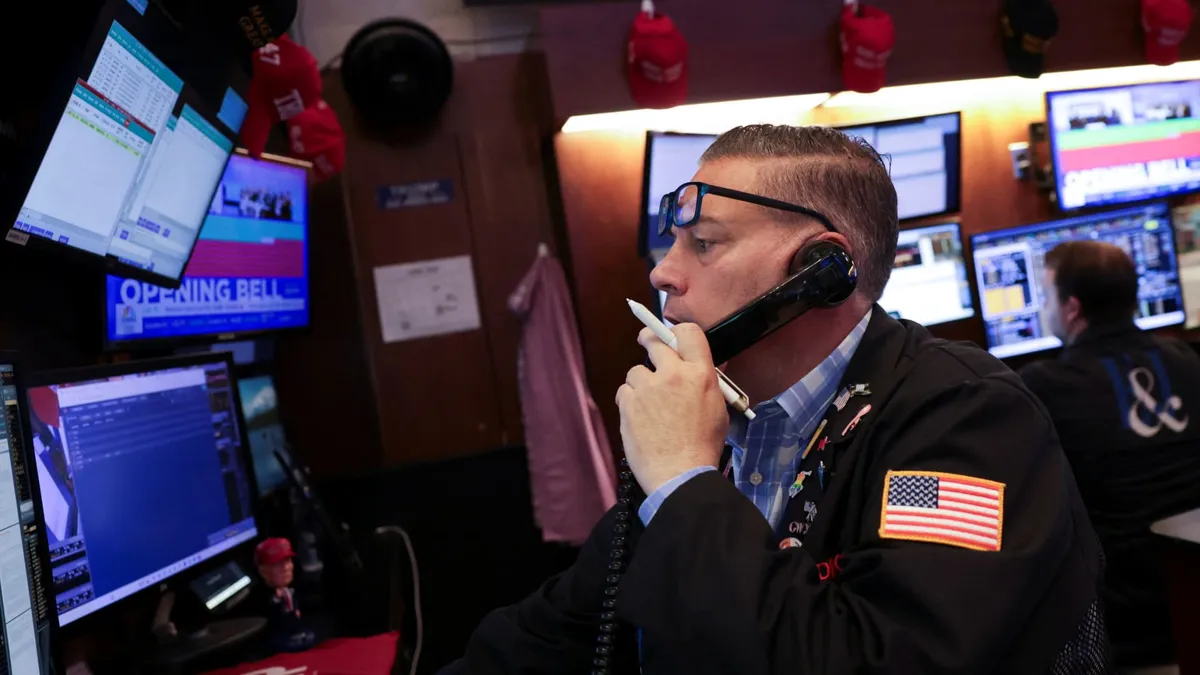
The U.S. 10-year Treasury yield experienced an increase on Monday, reflecting heightened investor concern over ongoing trade tensions. This rise comes as the deadline for a 90-day tariff reprieve has been extended, yet U.S. President Donald Trump has threatened to impose additional tariffs. The benchmark 10-year yield climbed by 4 basis points, reaching 4.383%. Meanwhile, the yield on the 30-year bond saw a 6 basis point increase, now sitting at 4.916%, and the 2-year Treasury yield ticked up by 1 basis point to 3.892%. It's important to note that one basis point is equivalent to 0.01%, indicating that yields and prices move inversely.
Investors are closely watching the approaching deadline for President Trump's 90-day tariff reprieve, which affects most countries. It is anticipated that tariffs will revert to their original levels from April 2 within this week. On Monday, Treasury Secretary Scott Bessent spoke on CNBC's Squawk Box, indicating that several significant trade announcements are expected within the next 48 hours. Bessent noted that the upcoming days are likely to be quite eventful, though he refrained from specifying which countries would be impacted by these developments.
Further complicating the situation, President Trump issued threats over the weekend regarding the potential for additional 10% tariffs on nations that align with what he describes as Anti-American policies of the BRICS nations. This group includes Brazil, Russia, India, and China, who are currently holding a meeting in Rio de Janeiro, Brazil. In response to these tensions, both President Trump and Commerce Secretary Howard Lutnick clarified to reporters that reciprocal tariffs will revert to their original levels starting August 1 for countries that do not secure a deal beforehand. "Tariffs go into effect August 1," Lutnick stated, while emphasizing that the president is currently determining the rates and terms of these deals.
In a joint statement released on Sunday, the leaders of the BRICS nations criticized Trump's tariff strategies, warning against what they describe as unjustified unilateral protectionist measures. They specifically highlighted the indiscriminate increase of reciprocal tariffs as a point of concern. This ongoing tariff drama underscores the complexities of international trade relations and the potential ramifications for global markets.
As the situation evolves, market participants will continue to monitor these developments closely, understanding that the interplay of U.S. Treasury yields and trade policy will significantly influence investor sentiment and economic stability.